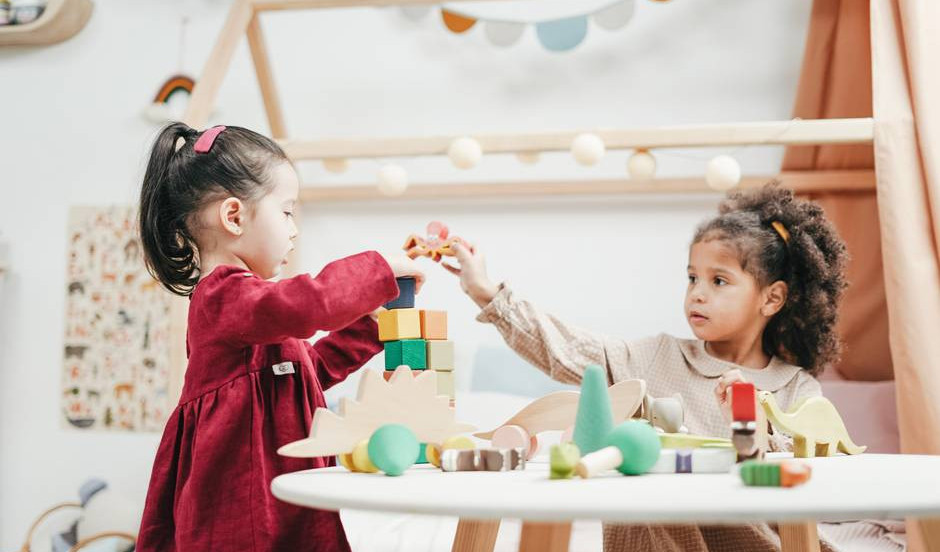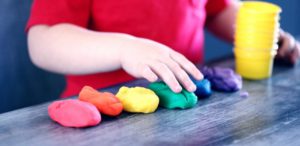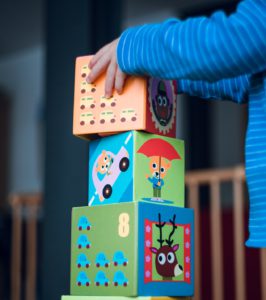 There are many benefits of play in Early Childhood. Play is the primary mode through which children make sense of their world. It is essential to their development and well-being. Research has proved that when kids are doing things, they are learning through play. Children learn best when they are having fun and they are more likely to be having fun when playing.
There are many benefits of play in Early Childhood. Play is the primary mode through which children make sense of their world. It is essential to their development and well-being. Research has proved that when kids are doing things, they are learning through play. Children learn best when they are having fun and they are more likely to be having fun when playing.
Play is more powerful than most people give credit. It is actually the key to learning. Play can help enrich learning and help develop skills they will need later in life. Lets take a look at the benefits to play in early childhood.
Early Brain Development
Play stimulates the brain to make connections between the nerve cell at the front end of your brain. These connections causes the prefrontal cortex to become bigger and faster. The prefrontal cortex is the brain’s executive control center which regulates emotions, make plans, and solve problems.
Through play, synapse production take place. This allows information to be captured from the early years to build a foundation for the brain development. An environment enriched with play and play materials provides the perfect opportunity for those synapses to build. The more synapse production the stronger the foundation for brain development.
Social Skills
Through play, children learn to communicate, negotiate, and cooperate with one another. Children share social experiences with friends and develop a sense of community. There is a constant give and take between the children.
When children share play experiences, they:
- Take turns
- Work together
- Follow rules
- Solve problems
- Practice societal rules
Children who play are more self-regulated, cooperative, considerate, friendly, and socially competent. They display more appropriate social behaviors, coping skills, and experience greater peer acceptance.
Emotional Development
When children play, they are able to safely express their feelings and make sense of the world around them. Playing gives children plenty of opportunities to experiment with various feelings and emotions which in turn helps them deal with their own feelings and emotions.
Through play, children:
- Explore their feelings
- Develop self-discipline
- Learn how to express themselves
- Develop sympathy and empathy for others
Confidence and Self-Esteem
As children grow, they develop confidence and self-esteem from their interactions with others. Self-esteem is boosted by kids through play and successful peer interactions which in turn builds confidence in children.
Through play, all kids have an opportunity to participate regardless of their background knowledge or ability level. Kids are given chances to overcome challenges at their level which develops a sense of accomplishment and leads to higher self-esteems. Play gives children opportunities to feel successful in their learning. That success will help to build up their confidence.
Fine and Gross Motor Skills
Play requires movement. Kids use fine motor skills to manipulate small toys and gross motor skills when they run around and play actively. The more they practice both types of motor skill, the faster these skills will develop.
During physical play, children develop their small muscles through activities such as playing with construction blocks, threading, drawing, cutting, and painting. They develop their large muscles through movements such as jumping, running, swinging, and skipping
When kids are playing, they are learning reflexes and movement control, which develop fine and gross motor skill and increasing flexibility and balancing skills.
Problem-Solving
Play contributes to the development of children’s thinking and problem-solving abilities. It provides children with opportunities to view situations from different perspectives and brainstorm different ways that they can resolve the problem. Children learn cause and effect relationships, how to manipulate objects, and develop critical thinking skills. When conflict arises with a friend, or their tower keeps falling down, or deciding who goes first in the game, playing provides a way to find solutions in a fun way. As children become more confident in their problem-solving abilities through play, they will start taking on some of the responsibility when dealing with daily situations.
Language and Vocabulary Development
Guided play is a model setting for language and vocabulary development. Children are constantly being exposed to new learning experiences and to new vocabulary. Through activities they start to build and expands on their vocabulary as they talk about what they are engaging in. Children are watching, listening, exploring, and imitating the language that is around them. Through interactions, children get a chance to practicing their language, grammar and sentence construction. And they refine their speech sound through listening to others.
 Math Skills
Math Skills
Play develops the building blocks for math concepts. During play is when the foundational concepts of math are introduced and explored. Children start to learn concepts like numbers, counting, size, and shapes through play. If enough of these meaningful experiences are offered early on, children will find it natural to learn more formal mathematical concepts later on. Math is everywhere in daily experience
Scientific Process
Play stimulates a child’s drive for exploration and discovery. This motivates the child to gain mastery over their environment, promoting focus and concentration. It enables the child to engage in the flexible and higher-level thinking processes. This includes inquiry process of problem solving, analyzing, evaluating, and applying knowledge. Children learn to think critically and problem-solve as they experiment, create, construct, imagine and probe thew way things work.
Conclusion
Play should have a central role in early childhood classrooms and in the lives of all children. Today children are experiencing reduced opportunities for play due to increased academic pressure and time spent on digital devices. Because play is vital for children’s healthy social development, the loss of opportunities for play is particularly troubling.
Play is NOT more important than science, literacy, physics, or math. Play IS science, literacy, physics, and math. It is the foundation for learning.